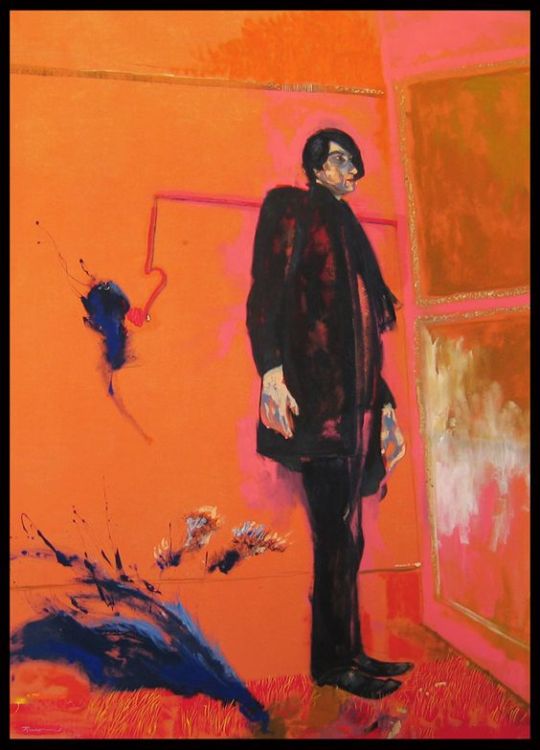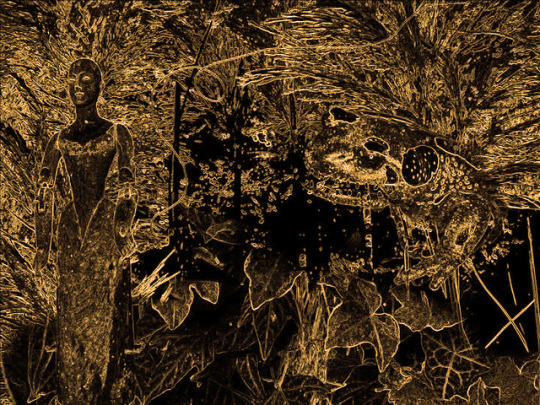#rufoism
Text

A New Phase of the Battle
…I had spent so much time focusing on the intricacies of civil rights law in recent years that, until I read [Christopher F.] Rufo’s book [America's Cultural Revolution: How the Radical Left Conquered Everything], I had almost forgotten why I find such ideas and the people who believe in them so repulsive in the first place. In his profiles, I saw almost nothing admirable in either the thought or personalities of individuals like Marcuse, Freire, and especially Derrick Bell, who seems to have been a deeply disturbed and unpleasant man. The idea that these people, who — again, I can’t stress this enough — would have murdered many of you and orphaned your children if they’d had the chance, are tolerated or even celebrated by modern liberals is a powerful thought to keep in mind.
The major danger here is that mindless anger can also lead a movement astray. Conservatives have a longstanding tendency to chase shiny objects. A decade ago, Republican state legislators were banning Sharia law while funding the growth of DEI bureaucracies within their university systems. The decade before that, conservatives enjoyed the liberal tears that were spilled in opposition to the Iraq War, while years of Republican governance under Bush gave us much higher debt and the TSA as next to nothing was done about civil rights law or leftist indoctrination in higher education, which had already gone astray.
Of course, conservatives have been complaining about this stuff for half a century now. During the 2008 election, they tried to get the media to take seriously Obama’s undeniable connections to Bill Ayers, which ended up being covered at the time, though not nearly enough. The contribution of Rufoism is convincing conservatives that they can do more than try to appeal to the good sense of more reasonable liberals. The passage below sums up the essence of his theory of political action.
Beneath the appearance of universal political rule, their cultural revolution has an immense vulnerability: the critical ideologies are a creature of the state, completely subsidized by the public through direct financing, university loan schemes, bureaucratic capture, and the civil rights regulatory apparatus. These structures are taken for granted, but with sufficient will they can be reformed, redirected, or abolished through the democratic process. What the public giveth, the public can taketh away.
If disciples of Marcuse and Bill Ayers simply started their own churches and were able to influence society through private donations in the way that Evangelical Christians do, there would be little that could be done under the Constitution to take away their power other than to try and convince people their ideas are wrong.
But that’s not the world we find ourselves in. As someone who sees the all too real flaws of the right and hopes for a reasonable left to emerge, it’s been depressing to watch the reaction to Rufoism in the mainstream press, where his preferred policies being implemented are treated as amounting to some kind of undemocratic coup. When states ban the teaching of certain concepts in schools or take gay porn out of libraries, we hear shrill cries about the decline of free speech and “book burning.” To talk about the free speech rights of a public school teacher on the job is akin to defending the right of a bus driver to go wherever he wants. The idea that the state sets curriculums and tells educators what to teach was never controversial until conservatives started exercising what has always been a normal function of government.
Similarly, if parts of public universities were taken over by astrology departments, Nazis, or creationists, few liberals would see the problem with cutting off funding for their activities. Why should communism or women’s studies, which denies basic biology, be any different? If you think any of these things don’t belong in a public university, then the debate is simply about which ideas lack scholarly or pedagogical merit, not whether or not some do.
What conservatives are doing seems radical now only because the movement has been asleep at the wheel for decades. They are to blame for letting it get to the point where some of the worst people in the world are in charge of educating American youth and running human resources departments. Given where we are now, Rufoism therefore must involve running roughshod over the preferences of well-credentialed experts. So be it. A glance at the state of academia, particularly the field of education, provides few reasons to defer to their judgments. The rise of the school choice movement is one reason to be extremely optimistic.
In recent years, we have seen supposed big-brained takes on the right about how conservatism has failed, capitalism itself is the enemy, and it is now necessary to agree with Elizabeth Warren on economics in order to push back against anti-white hatred and LGBT indoctrination. Rufo’s message is the opposite. By leaving civil rights law intact and letting the public education system operate autonomously, the problem is that conservatives haven’t believed strongly enough in freedom and markets.
I can’t help but wonder, if conservatives do enact all of their policy preferences and take away power from the radicals, what would come after? In his conclusion, Rufo gives some thoughts on what a healthier society would look like.
The common citizen will have the space for inhabiting and passing down his own virtues, sentiments, and beliefs, free from the imposition of values from above. The system of government will protect the basic dignity and political rights of the citizen while refraining from the hopeless and utopian task of remaking society in its image. The promise of this regime lies in the particular, rather than the abstract; the humble, rather than the grandiose; the limited, rather than the limitless; the shared, rather than the new sensibility.
Those are nice sentiments, but history has shown that smart and idealistic people are attracted to universalist ideologies, rather than visions that make room for local and particularistic orders. America was founded by such men, who revolted against the superstition, hereditary privileges, and authoritarianism of their day. Communists, Critical Race Theorists, and feminists are in the same tradition of smart people with big ideas about the world, with the main difference between them and the major figures of the Enlightenment happening to be that they’re wrong.
The resistance to woke is an uneasy alliance of the last believers in the Enlightenment project and what the media refers to as “Christian Nationalists.” If the spell of critical theory, or whatever shorthand you want to use to refer to our modern insanity, is broken, one has to consider the question of where smart and idealistic people go next. Chances are the next thing will probably be better, but part of me wonders whether it wasn’t the worst option to allow some of the people with the ugliest impulses to play in their little sandbox of academia rather than try to influence policy more directly.
Given how hard it is to predict the higher order effects of any movement, however, there is nothing to do but go forward. These people are worth fighting both in the world of ideas and in the policy arena. The fact that their intellectual commitments and beliefs are repulsive to most normal humans hasn’t mattered that much when the political backlash to campus radicals and left-wing activists has been passive, disjointed, and interested in rhetoric more than substance. Those days are over. I don’t know what the end result of the war on wokeness will be, but I am sure that we’ve entered a completely new phase of the battle.
—Richard Hanania, "How Much Do Intellectuals Matter?" (17 Jul 23)
4 notes
·
View notes
Photo

@jacoporinaldi @orenji4orange @rufoism @taleindie5-blog @feed-the-fag-blog @atashkajackson @savannahanandsobti-blog @jeromenadeau @latebadger @artisticexpansion @confront @scottjcoop @alexismazin @jshawback @schoenes @lucifers-loser @youluckybastard @sophiewardman @alkham @hogxote @richgirlred @m-i-c-h-a-e--l @gap-teeth @tsoxinyuxin-blog @smithist @enchiladasrojas @thesoftlysoftly @tonecones @williamhackerphoto @eraserfraser @pestecanina @darkblueswells @rosalineshahnavaz @ttrruue @joelriley @soyaronix-blog @jume1989-blog @sunnihart @roughoclock @memorialdeinverno-blog @golddustwoman1971-blog-blog @mude-welt @abstractnumbers @annirosefischer @kikickick @bon-bon @itsacrime-blog @giovannisound @mtbibltw @alchemic-seas
Ray-Ban Sunglasses
2 notes
·
View notes
Text
Bologna, The Rooom - DIALOGHI IN CERCHIO. Finissage della mostra "Il cerchio spezzato"
Bologna, The Rooom – DIALOGHI IN CERCHIO. Finissage della mostra “Il cerchio spezzato”
Il 12 aprile 2022 presso the rooom, nell’affascinante cornice storica di Palazzo Aldrovandi Montanari (Via Galliera n. 8),avrà luogo il finissage della mostra Il cerchio spezzato a cura di Eleonora Frattarolo. A chiusura dell’esposizione che ha visto in mostra le opere di sette artisti (Rufoism, Paolo Migliazza, Edoardo Sessa, Angelo Maisto, Luciano Leonotti, Andrea Valsecchi, Silvia Zagni) si…

View On WordPress
0 notes
Photo

Rufoism: “ “self portrait in entrance” oil on canvas 2004 This painting was destroyed. ”
0 notes
Photo

Marco Rufo Perroni (It. 1970)
Bologna: Piazza del Nettuno (2015)
ink, gouache and pastels, 32x21 cm
Via rufoism.tumblr.com
70 notes
·
View notes
Photo

LAY YOUR BODY DOWN
2011
7 notes
·
View notes

